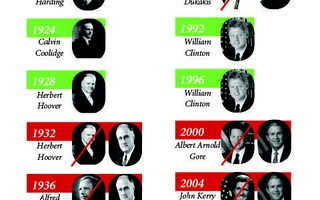Former Vice President Al Gore ’69 spoke to a packed audience about his latest book “Our Choice: A Plan To Solve the Climate Crisis” at First Parish Church in Harvard Square on Saturday afternoon.
Gore used the venue as an opportunity to warn about impending climate catastrophes if sweeping steps toward an international solution to global warming are not soon taken.
“If we were to decide in the present generation that it was fine for us to take advantage of all of the work and sacrifices [done] by previous generations...that would be the single most immoral act of any generation of human beings to act on this planet,” Gore said. “But that is the decision that we face.”
Unlike his previous book, “An Inconvenient Truth” which focused on the causes and science of climate change, Gore’s newest book—published on Nov. 3—focused on the steps that would be necessary to reach a solution.
Gore said in his speech that the technology necessary to transition from a carbon-based to a renewable-based economy already exists and that the major impetus to sweeping legislative changes is an American democratic system that is crippled by special interest groups and lobbyists.
“There are special interests that set aside enormous amounts of money every year for the purpose of feeding the political system, I’m talking about a serious defamation of American Democracy,” Gore said. “When the special interests want to stop reform movements in Congress, they have an enormous and unhealthy amount of power to do so.”
Gore added that television advertisements and punditry have “shaped peoples’ political consciousness,” and have convinced large amounts of people in coal-producing states to doubt the scientific claims about global warming.
But Gore said that the Internet could challenge the special interests in D.C. and on television, pointing out the low barriers to entry for ordinary people and the opportunity to freely exchange ideas.
“The internet brings great hope that we will be able to reclaim control of our governance and fulfill the dream of self-governance by the people and for the people,” he said. “The most important reform movements of history have risen from grass roots movements...and in the present political culture it is all the more important for young people all over the country to get active and speak up.”
Gore also framed the climate change issue in economic and security terms, arguing that much of the U.S. economic deficit and military presence in the Middle East can be traced back to “our ridiculous and absurd dependence on oil, coal, and other carbon-based fuels”.
Many audience members said that they were pleased with Gore’s message.
“What this book does and this talk says is that it is a variety of myths that prevents us from acting [on climate change],” said James J. McCarthy, a biology professor who co-chaired the Intergovernmental Panel on Climate Change. “Myths that the technology is non-existent, myths that the technology is too expensive, myths that somehow the problem will solve itself without the public and political will [Gore] inspires in this book and in his talks.”
—Staff writer Natasha S. Whitney can be reached at nwhitney@fas.harvard.edu.
Read more in News
Square Embraces Folk Music RootsRecommended Articles
-
'Love Story' Author Erich Segal Dies at 72Erich W. Segal ’58, classics scholar and popular writer of works like “Love Story,” died Sunday from a heart attack at his home in London. Segal, who had been battling Parkinson’s disease for over 20 years, was 72.
-
Get Out!Tired of Widener?
-
The Chai Party MovementIn the past year, two very different democracies have given birth to eerily similar movements.
-
Why Can’t We Be Friends?There is little room in the blogosphere for another comparison of Occupy Wall Street and the Tea Party movement, but echoes resound in the empty space where neutral constructive criticism might be found.
-
Beware the Spoiler MythIn what kind of democracy does a presidential candidate get arrested for showing up to a presidential debate?
-
 If Harvard Picked The President
If Harvard Picked The President













